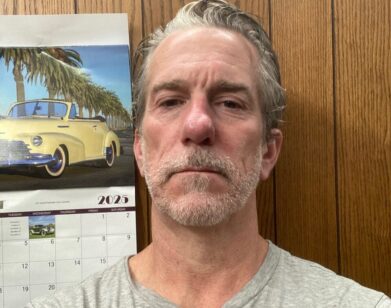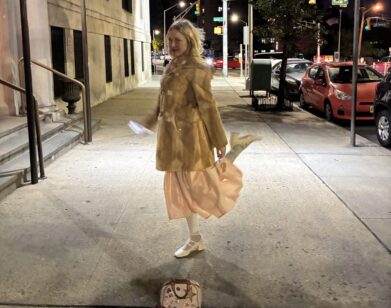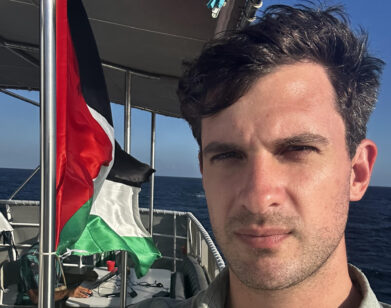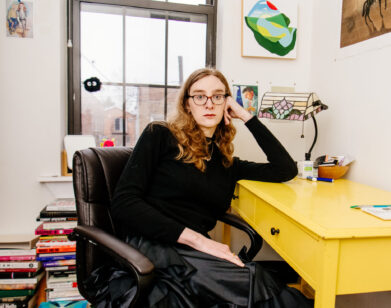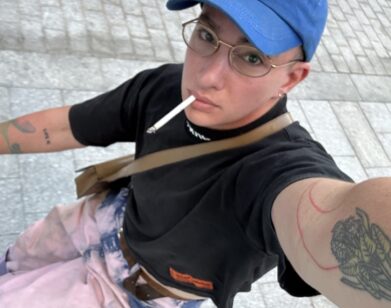Ilana Masad’s “All My Mother’s Lovers” Examines Queerness Across Generations
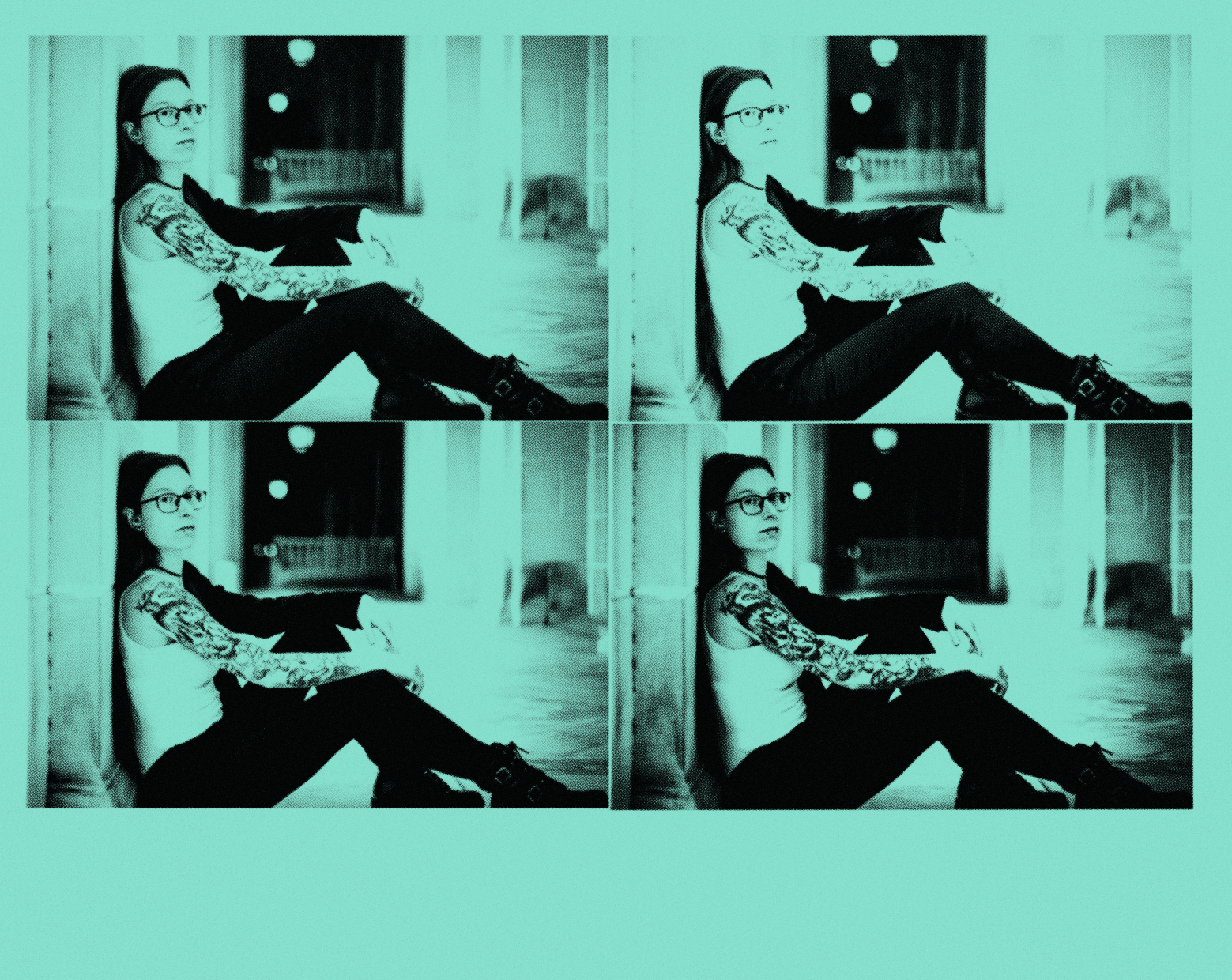
Ilana Masad’s debut novel All My Mother’s Lovers is one of the most anticipated books of 2020, and for good reason. Masad takes on the complexities of modern life, specifically modern queerness, with a thoroughly compassionate gaze. Her novel revolves around a familiar conceit: a portrait of a family after a death shakes it to its core. A will is found, mystery abounds, and the ugly truths of the family must be unveiled. Except the truths found in All My Mother’s Lovers aren’t ugly; they’re just complicated. The book, written from the perspectives of a queer daughter and her homophobic mother, sees them detangling the knots of misunderstanding that have built up over a lifetime.
Masad’s strength lies in characters that feel close to reality in their refusal to be flattened by assumptions and stereotypes. And in Masad’s hands, reality is never boring. We got on the phone with Masad to discuss her writing process, growing up in Israel, and how queerness is lived across time.
–––
SHANTI ESCALANTE: On all your bios you’re described as American-Israeli. Did you move here from Israel?
ILANA MASAD: I was born in the U.S. and we moved to Israel when I was three. I grew up there in a small city near Tel Aviv, until I went to college. I know my bios all say that I’m Israeli American, but it’s a phrase that I’ve been rethinking. I’ve sort of begun calling it “the country that is currently internationally known as Israel.” But we can also call it Israel-Palestine—that would be another way to be respectful of the fact that it is a colonial space.
ESCALANTE: What was that experience like for you?
MASAD: Fraught. It’s a strange place. In some ways, it was a very normal upbringing. I think some people think of it as an underdeveloped country, but it’s the politics of it that are so very fraught. I grew up during the second Intifada and my parents were very left-wing, so I grew up knowing that a lot of the rhetoric that was being bandied about around me was wrong and incorrect. But at the same time the reality was there were a lot of suicide bombs going off, and it was dangerous to go to public spaces for a while. There was a war happening. Territories were occupied and that there were Palestinian villages being destroyed constantly.
It was a stressful environment to grow up in for sure. Everyone is always talking about politics and people yell at each other about politics, but unlike here in a sense, at least at the time, neighbors could disagree in very deeply fundamental ways and also still somehow get along. There’s a lot of unlearning that I’ve had to do, even having very left-wing parents who took me to protests and demonstrations against the occupation from the time I was little. There’s still so much I didn’t know and understand about the kind of rhetoric I was being imbued with. There’s a lot of preconceived notions everywhere. And also, there’s so much tension that comes in from the outside; the meddling of other countries in the region is just so huge. It can be very hard to know how much of the rhetoric comes from inside and how much comes from the outside.
ESCALANTE: Right. I think Americans, with the Russian interference in political campaigns, are experiencing for the first time the profound helplessness and frustration of what happens when other countries start meddling in your affairs, but this is old news for basically everybody else.
MASAD: Right. I also think that even the woke lefty Americans, what they’re experiencing right now, a lot of them people who have not been in or seen or known any other kind of space—they’re finally realizing how much they’ve been indoctrinated with American exceptionalism, and how un-exceptional this country is.
ESCALANTE: I’m seeing a lot of parallels between your own life and the lives that you’ve built up in All My Mother’s Lovers. Did you feel vulnerable putting in these details that at times reflected broadly your own experiences?
MASAD: Not really, because of how broad they are. Obviously there are elements in the book that are reflective of my life, but nothing strictly autobiographical. There are certain things in Maggie that I relate to, there are certain elements of my experience that might be reflected in aspects of the politics of the book, but none of the details of the lives of the characters are very similar. Or at least not in any kind of one-to-one way.
It wasn’t until after I finished the book and other people pointed out some of the sort of emotional parallels that I started noticing some of those. I hadn’t realized a lot of those parallels, so I don’t think I even realized how much of myself I probably was putting in.
ESCALANTE: Yeah, it’s almost like when you wake up and you start explaining your dream to somebody and everything starts falling into place, even though it seemed so foreign and insane.
MASAD: Yeah, exactly.
ESCALANTE: Is this your first time attempting to write something of this length?
MASAD: Not at all, no. This is just the first one that’s been sold. I’ve written quite a few. I think this is my eighth fully completed one. It’s the fourth book I sent to agents.
ESCALANTE: That’s insane.
MASAD: Just to put it in perspective, many of them are very bad. I write quickly, but that doesn’t mean it’s good.A lot of it was just practice, just getting a lot of words out. The first thing that was of length that I wrote was a 200,000 word high fantasy young adult thing that I wrote when I was 18. I’m very nervous to even look at it in terms of the prose.
ESCALANTE: What was the main inspiration for All My Mother’s Lovers?
MASAD: Well, I am not entirely sure. I know that the first sentence sort of came to me, or bits of it came to me one night when I couldn’t sleep and I just kind of stayed awake and thought about it and turned it over in my mind until I liked it. I started doing this free writing trying to figure out who Maggie was and who Iris were.
I think part of it probably came from getting really annoyed at the fact that I was seeing so many arguments between Millennials and Boomers. As a Millennial who is very close to her Boomer mother, I feel like there’s a lot of ways in which we willfully misunderstand each other, generationally. This is not a critique of either generation in any way. All old people were young once. We don’t like to talk about that somehow.
ESCALANTE: You constantly upend expectations or stereotypes in your book. For example, the expectation that once you’re old, you’re sexless.
MASAD: There is almost always an impulse of the young to believe that they’ve invented sex all over again somehow. Either because it’s gross to think about your parents having sex, or because sex is so hush-hush in certain ways. So I just wanted to—pardon the not intentional pun—fuck with that.
ESCALANTE: Did it feel natural creating characters that went against the grain of expectations?
MASAD: It was very natural to me, because I think everyone goes against the grain always in some ways. I think that Millennial, and Iris in certain ways is very much a particular kind of Boomer, and there are certain things they will not understand about one another. I think the ways in which they will care about politics, or the ways in which they have cared about politics are going to always be different. The ways that they think about Judaism are going to be different. But I also think that everyone is surprising.
ESCALANTE: In the book we’re dealing with conversations around polyamory, asexuality, and being trans. There’s this sense that now that we can name these ways of living that they are more concrete, or you can actually live in that way because they are named. Whereas queerness in the past feels anonymous because it was not often named—at least in ways that we recognize. Do you think that naming queerness makes living queer possible, in a way?
MASAD: I think about that a lot actually. I’m not entirely sure that’s true. I think that millennials believe that to be true, and I think that naming is very important. But I do think that we forget that names change and that terms change over time. There’s somewhat of a danger in claiming that queerness cannot exist without naming it, if only because we know even today as well as eons ago that every culture has had a history of men loving men, women loving women, women who are assigned women at birth and who dress and act as men, and men who are assigned male at birth and who act and dress as women, and that these people don’t always play the same roles in their society and culture and space. The way that we think of queerness is not universal.
But queerness has existed. There have always been these ways of existing—of living, of being, of thinking—that transcend gender in the binary sense, that transcend loving in a binary procreative sense. And so I think naming without a doubt is important, and I also think that this exists beyond naming. I think that naming can help us understand ourselves often, but that we sometimes become narrow if we believe that the only way to be something is to know its name.
ESCALANTE: As we see in the book, one generation will call their relationships with their multiple partners polyamory and another will just call it “an arrangement.”
MASAD: Exactly. And that’s the thing, people have always had arrangements, but we don’t like to think about it as regular people living regular lives doing it. It has to be a lifestyle. We like to think of the past as somehow primitive, so it’s easier to think we are newfangled and woke and modern and liberal.
ESCALANTE: You make a point of not shying away from modern life. There are moments when Maggie is about to feel an intense emotion and she opens up her phone and starts scrolling instead of processing it. That’s really relatable—I know I’ve done that. Though, I think I know that there are writers, especially young writers, who find the mundane realities of modernity–our phones, social media, going to Costco–to be kind of ugly, things we wish we didn’t have to write about. Do you feel that it’s difficult to write these mundane parts of our lives, or do you relish in it?
MASAD: I think I did find it difficult, just on a technical level. Like, how do I write about it without making it boring? It was difficult for me to figure out how to do it in a way that was doing something for my character, for the story, for the moment that I was in, but I felt like it was necessary to include because it’s a contemporary novel. It feels false to me to not deal with the mundanities of this reality, especially because I was focusing on generational divides.
ESCALANTE: What do you hope your readers take away from your book?
MASAD: I hope they find something they recognize and something they do not recognize, but that speaks to them in a way that surprises them, or makes them pause regarding their assumptions. I hope that both of those things can occur. That is the highest goal I can imagine.

